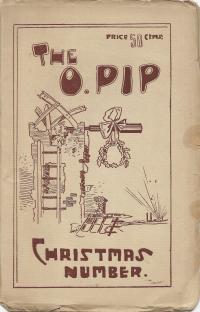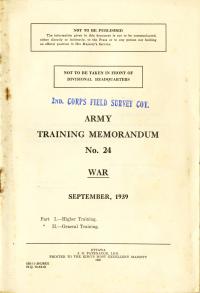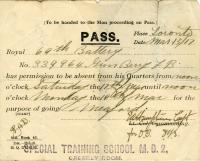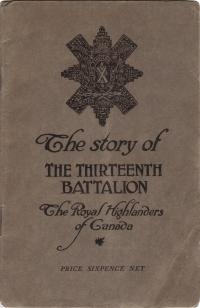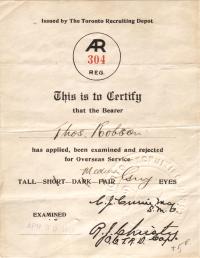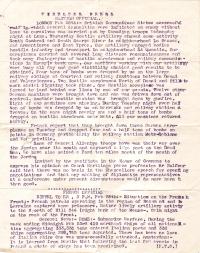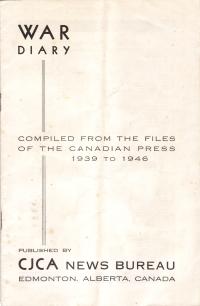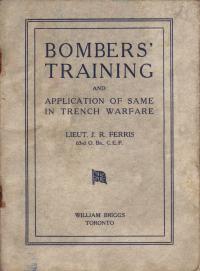Fighting
Inside an artillery battery
Like most First World War unit publications, this magazine combined cartoons, jokes, amusing stories, and battery news. A regular feature was "Things We Would Like to Know", which included the question "Why is it we're always on the move? Can't we pay the rent?"
Preparing for war
Issued at the beginning of the Second World War, this British manual (reprinted for Canada) covered only the most basic elements of training for war, including a series of games that could provide instruction in field-craft.
A weekend at home
This pass allowed Fleetwood Berry of the Canadian Field Artillery to be absent from his base for a weekend - perhaps to visit his family in Meaford, Ontario.
The Royal Highlanders of Canada
During the First World War, the Canadian War Records Office planned to publish short histories of every Canadian infantry battalion. This history of Montreal's 13th Battalion, affiliated with the Black Watch, was one of the few to make it into print.
Unfit for service
During the First World War, young men were often pressured to enlist - and were grateful to have a certificate like this one, which proved that Thomas Robson had been willing to serve but had been rejected by the army.
Calisthenics for soldiers
The Second World War revealed an unexpectedly low level of physical fitness in Canadian men, leading military authorities to devote considerable effort to remedial action. Training brochures like this one were among the results of that effort.
Unfit for service
During the First World War, young men were often pressured to enlist - and were grateful to have a certificate like this one, which proved that Thomas Robson had been willing to serve but had been rejected by the army.
Today's news - 1 March 1918
During the First World War, news reached Canadian newspapers through wire services. This bulletin contained British and French official reports, and information gleaned from German sources.
News from around the war
An Edmonton radio station compiled this almanac of events of the Second World War, beginning with British leaders attending talks in Rome on 11 January 1939 and ending with changes to the butter ration on 14 December 1946.
Grenades in trench warfare
One lesson of trench warfare was that "bombing" (or using hand grenades) was much more important in capturing and clearing enemy trenches than had been imagined before the war. As a result, training manuals like this one by James Ferris, who joined the 63rd Battalion in Edmonton in July 1915, were published as a way to pass on new tactical knowledge.

